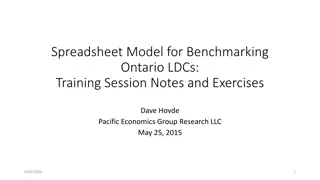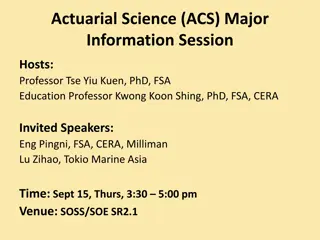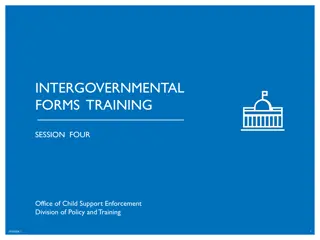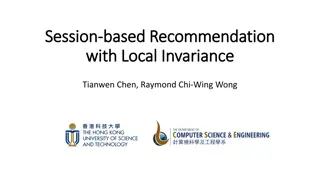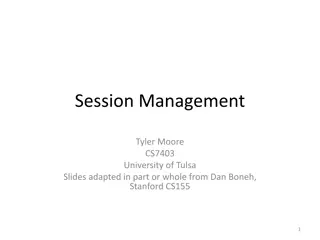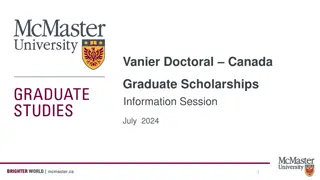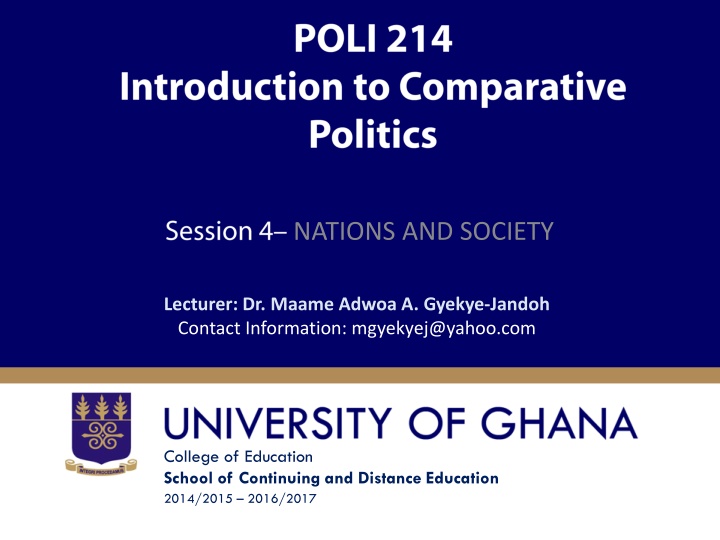
Ethnicity, Nationality, and Citizenship in Society
Explore the distinctions between ethnicity, nationality, and citizenship in this informative session. Delve into the complexities of political attitudes, ideologies, and identity within different cultures and societies. Enhance your knowledge of global conflicts rooted in these differences and discover the significance of national identity in uniting diverse ethnic groups.
Download Presentation

Please find below an Image/Link to download the presentation.
The content on the website is provided AS IS for your information and personal use only. It may not be sold, licensed, or shared on other websites without obtaining consent from the author. If you encounter any issues during the download, it is possible that the publisher has removed the file from their server.
You are allowed to download the files provided on this website for personal or commercial use, subject to the condition that they are used lawfully. All files are the property of their respective owners.
The content on the website is provided AS IS for your information and personal use only. It may not be sold, licensed, or shared on other websites without obtaining consent from the author.
E N D
Presentation Transcript
NATIONS AND SOCIETY Lecturer: Dr. Maame Adwoa A. Gyekye-Jandoh Contact Information: mgyekyej@yahoo.com College of Education School of Continuing and Distance Education 2014/2015 2016/2017
Session Overview Overview This session introduces students to the distinction between ethnicity, nationality and citizenship. This will help you appreciate some of the conflicts in the world as a result of the differences in ethnicity, nationality and citizenship. It also introduces two different types of political views by individuals about issues of freedom and equality within a state. These are political attitudes and political ideology. Finally, students will become familiar with the interesting definitions of the various types of political ideologies in the world. This will increase your knowledge of political parties and governments. Slide 2
Session Outline The key topics to be covered in this session are as follows: Topic One: Ethnic Identity, National identity, and Citizenship Topic Two: Political Attitudes and Political Ideology Topic Three: Types of Political Ideologies Slide 3
Reading List O Neil, Patrick H. (2007). Essentials of Comparative Politics. Norton. 2nd edition. Chapter 2. O Neil, Patrick and Ronald Rogowski.(2004). Essential Readings in Comparative Politics. Norton. Slide 4
Topic One ETHNIC IDENTITY, NATIONAL IDENTITY AND CITIZENSHIP Slide 5
Ethnic Identity Ethnicity refers to specific notable attributes and social institutions that make one group of people culturally different from others. Some of the major notable attributes of ethnicity include language, religion, geographical location, customs and traditions, as well as historical ties. People belong to one ethnic group or the other because they are born into it. It is not by choice that someone is an Akan, Dagomba, or an Irish. Slide 6
National Identity Nationality or national identity is a political concept which refers to an institution that binds people together through a common set of political aspirations, including issues of political independence and belonging to one nation. The major differences between national identity and ethnic identity are the notions of political sovereignty, freedom and equality associated with national identity. For example, all the different ethnic groups in Ghana have the same political aspirations as Ghanaians. Their national identity is what makes them one nation. Slide 7
Citizenship Citizenship can be defined as an individual s or a group s relationship to the state; those who are citizens swear allegiance to that state, and the state in return is obligated to provide rights to those individuals or the members of that group. Some of the rights that the state provides to its citizens include the right to vote, the right to safety and security and other civil liberties. On the other hand, a citizen also has certain obligations to the state, including the duty to pay taxes, serve in the army etc. Unlike ethnic identity and national identity, citizenship is not obtained only by birth. One may choose to renounce your birth citizenship and acquire the citizenship of another country. This process is called naturalization. A state may also decide to take citizenship away from any individual born in the state. Slide 8
Identities In conclusion, it is significant to note that all three forms of identities are not mutually exclusive. Every individual has all three identities in one form or the other. Slide 9
Sample Questions Mention the top three largest ethnic groups in Ghana today. List any two documents that can be used as proof of citizenship in Ghana. How do you distinguish ethnic identity from citizenship? Slide 10
Topic Two POLITICAL ATTITUDES AND POLITICAL IDEOLOGY Slide 11
Political Attitudes Political attitudes refer to the behaviour of individuals regarding the pace and scope of change in the political system to ensure freedom and equality. This behaviour may range from radical approach to political change to a more liberal, conservative or reactionary approach. Radical approach is where individuals believe in revolutionary transformation to bring about total change in an existing political, social, or economic order. On the other hand, liberal political attitude is where individuals believe in evolutionary transformation of the political system to effect changes in the political, social, or economic order. Liberals may wish for change but they do not believe in sudden transformation to effect that change. Slide 12
Political Attitudes (contd.) Conservatives are those who believe that change is not necessarily the solution to existing political, economic or social order. In their opinion, conservatives believe that change may simply replace one set of problems with another. Reactionaries are those who hold the view that the existing political, social and economic order cannot be changed either through radical means or liberal approach, but it should be restored back to the old order and values. Reactionaries believe that the older order or regime is supreme to the current order. Slide 13
Political Ideology Political ideology refers to a set of political values held by individuals on matters of the political aspirations of the people [O Neil 2007, p61]. Political ideologies are about the ideal state of freedom and equality and the role of institutions in ensuring this ideal state. It is about the values that should inform the realization of a perfect relationship between freedom and equality. There are five different types of ideology namely; liberalism, communism, social democracy, fascism and anarchy. Question: Distinguish between Political Attitudes and Political Ideology. Slide 14
Topic Three TYPES OF POLITICAL IDEOLOGIES Slide 15
Liberalism Liberalism is an ideology that believes that politics should create opportunity for maximum degree of liberty including freedom of speech, freedom of association, freedom of movement, freedom of religion and other basic fundamental rights. Slide 16
Communism Communism is an ideology that opposes individual liberty, limits individual rights enjoyed under liberal democracies. Communist ideology believes that individual rights must give way to the needs of society. Slide 17
Social Democracy Social democracy or socialism is a political ideology which is a mix of liberalism and communism. Socialism is a moderate version of communism which also embraces the values of individual liberties espoused by liberalism. At the centre of socialism is the pursuit of greater economic equality, even sometimes at the expense of individual freedom. Slide 18
Fascism Fascism as a political ideology is much like communism as far as its rejection of individual freedoms is concerned. However fascism differs from communism in the sense that it does not believe in equality of all people or a classless society as encouraged under communism. Fascism believes that there should be room for a few leaders to have total control over the majority. Under fascism, there is a hierarchy of superiority and inferiority in society. Slide 19
Anarchism and Fundamentalism Anarchism is a political ideology which espouses a stateless society where there is no central authority to ensure individual freedoms and economic equality. There is so far no nation in the world today which is operating under the ideology of anarchism. Fundamentalism is an ideology that seeks to unite religion with the state, or try to make a particular religious faith the sovereign authority. Fundamentalism can be associated with any of the major religions namely; Judaism, Christianity, Islam, Hinduism or other faiths. Slide 20
Questions Give one example each of a liberal party and a social democratic party in Ghana. Mention any two fascist leaders in history. Write short notes on the following: Liberalism Communism Social Democracy Fascism Slide 21
Conclusion of Session 4 In this session, you have learned that ethnic identity is all about cultural difference between groups of people as a result of language, location, customs and tradition. On the other hand, nationality is where the identity is as a result of political aspirations of people of the same state. Citizenship is closely related to nationality because it also has to do with an individual s relationship with the state in terms of rights and responsibilities. However, citizenship is different from nationality and ethnic identity because it is not limited to birth right. You have also learned about political attitudes and the different types of political ideologies. Liberalism is the extreme of ideologies that advocate individual freedom, while communism, socialism and fascism are at the extreme of ideologies that are more concerned about collective security and equal opportunity for all people. In Session 5, you will be introduced to Political Economy and the various political-economic systems/ideologies. Slide 22
References O Neil, Patrick H. (2007). Essentials of Comparative Politics. Norton. 2nd edition. Chapter 2. O Neil, Patrick and Ronald Rogowski.(2004). Essential Readings in Comparative Politics. Norton. Slide 23






